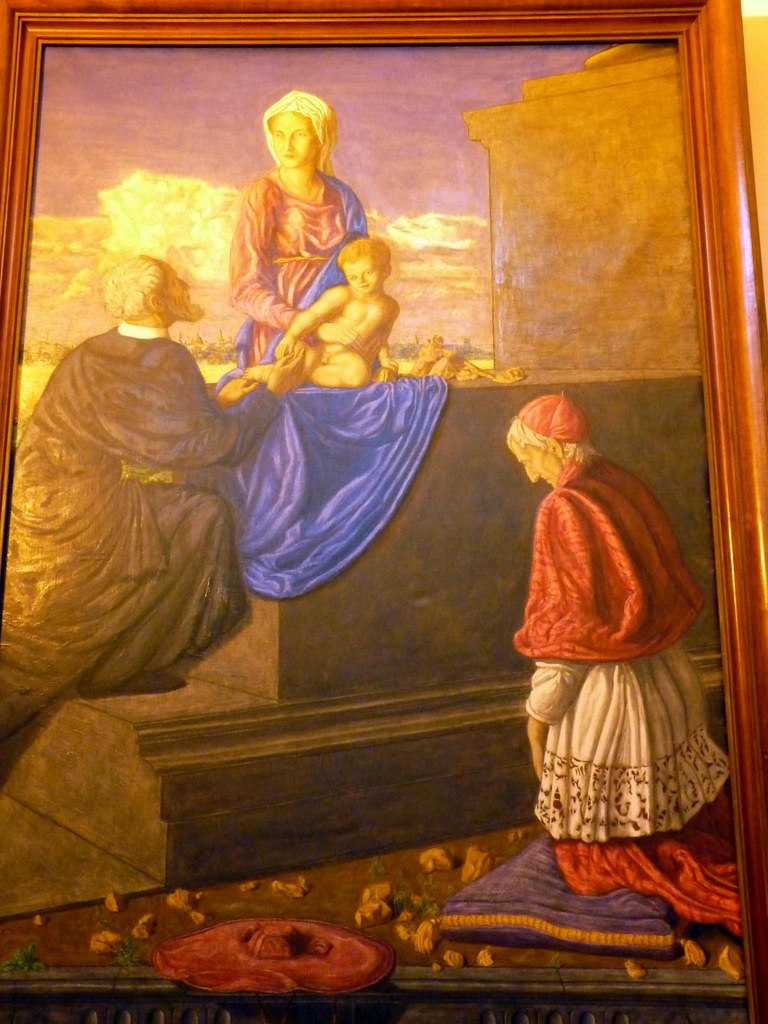Posted on September 8, 2019 View all news
Laudetur Jesus Christus! Gelobt sei Jesus Christus!
Sia lodato Gesù Cristo! Praised be Jesus Christ!
Beginning next Sunday, the Oratory will be hosting Fr. Philip Johnson who will be staying with us for a month. I want to welcome him back to our parishes. He previously had visited with us in the spring and then again in the summer. Fr. Johnson is a priest of the Diocese of Raleigh.
Please feel free to certainly introduce yourself and talk with him when he has Mass, or you see him around. Please note, however, that I am asking that he not be asked to meet with you or do spiritual direction for you while he is with us. He will only be available to do the specific ministries as assigned by the Oratory. Thank you for your understanding, and please keep him in your prayers during his visit!
Today, if the Sunday did not supersede it, is the Feast of the Nativity of the Blessed Virgin Mary. One of only three nativities we keep on our Liturgical Calendar, the other two being that of Our Lord and St. John the Baptist. As we continue in our preparation for the Canonization of Blessed John Henry Newman on October 13, please find this reflection on Our Lady by Newman. This will continue next week as we celebrate the Feast of Our Lady of Sorrows. Have a blessed week ahead!

“The great truths of Revelation are all connected together and form a whole. Every one can see this in a measure even at a glance, but to understand the full consistency and harmony of Catholic teaching requires study and meditation. Hence, as philosophers of this world bury themselves in museums and laboratories, descend into mines, or wander among woods or on the seashore, so the inquirer into heavenly truths dwells in the cell and the oratory, pouring forth his heart in prayer, collecting his thoughts in meditation, dwelling on the idea of Jesus, or of Mary, or of grace, or of eternity, and pondering the words of holy men who have gone before him, till before his mental sight arises the hidden wisdom of the perfect, “which God predestined before the world unto our glory,” and which He “reveals unto them by His Spirit.” And, as ignorant men may dispute the beauty and harmony of the visible creation, so men, who for six days in the week are absorbed in worldly toil, who live for wealth, or name, or self-indulgence, or profane knowledge, and do but give their leisure moments to the thought of religion, never raising their souls to God, never asking for His enlightening grace, never chastening their hearts and bodies, never steadily contemplating the objects of faith, but judging hastily and peremptorily according to their private views or the humour of the hour; such men, I say, in like manner, may easily, or will for certain, be surprised and shocked at portions of revealed truth, as if strange, or harsh, or extreme, or inconsistent, and will in whole or in part reject it.
I am going to apply this remark to the subject of the prerogatives with which the Church invests the Blessed Mother of God. They are startling and difficult to those whose imagination is not accustomed reason has not reflected on them; but the more carefully and religiously they are dwelt on, the more, I am sure, will they be found essential to the Catholic faith, and integral to the worship of Christ. This simply is the point which I shall insist on—disputable indeed by aliens from the Church, but most clear to her children—that the glories of Mary are for the sake of Jesus; and that we praise and bless her as the first of creatures, that we may confess Him as our sole Creator.
When the Eternal Word decreed to come on earth, He did not purpose, He did not work, by halves; but He came to be a man like any of us, to take a human soul and body, and to make them His own. He did not come in a mere apparent or accidental form, as Angels appear to men; nor did He merely over-shadow an existing man, as He overshadows His saints, and call Him by the name of God; but He “was made flesh”. He attached to Himself a manhood, and became as really and truly man as He was God, so that henceforth He was both God and man, or, in other words, He was One Person in two natures, divine and human. This is a mystery so marvellous, so difficult, that faith alone firmly receives it; the natural man may receive it for a while, may think he receives it, but never really receives it; begins, as soon as he has professed it, secretly to rebel against it, evades it, or revolts from it.” – Blessed John Henry Newman
